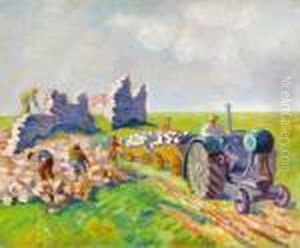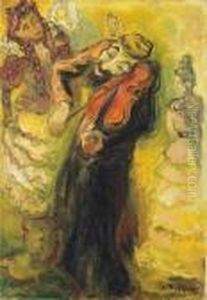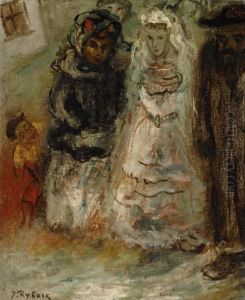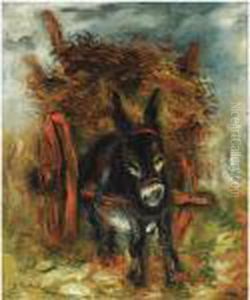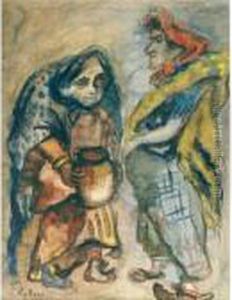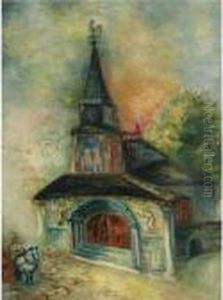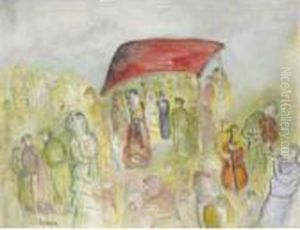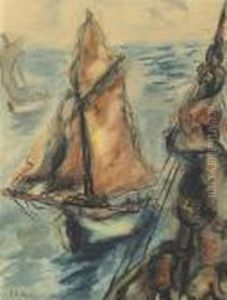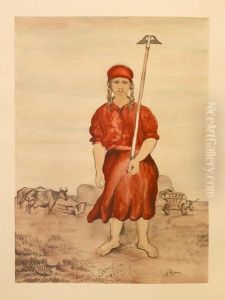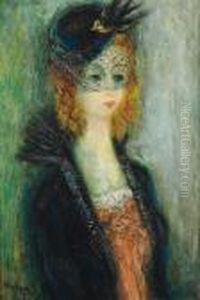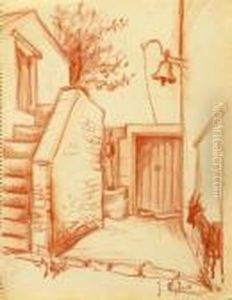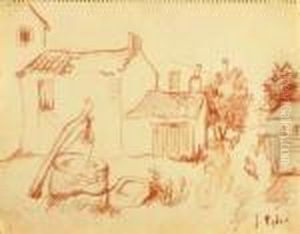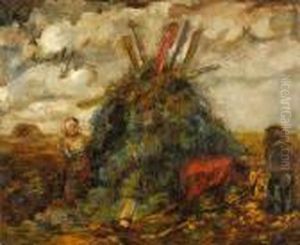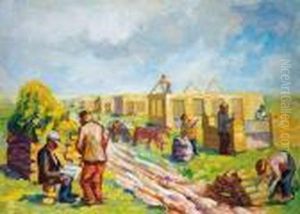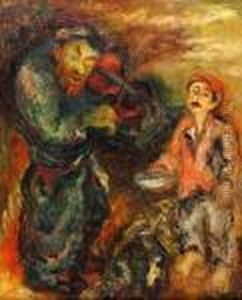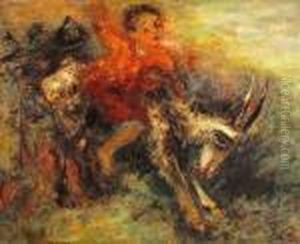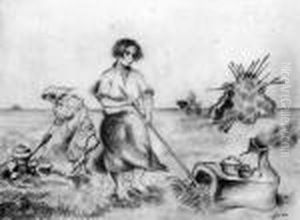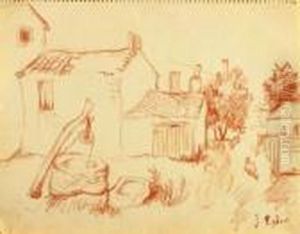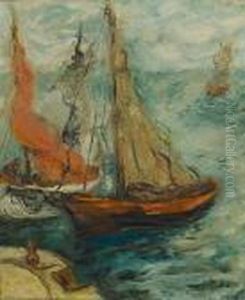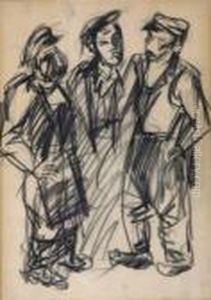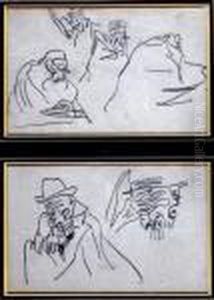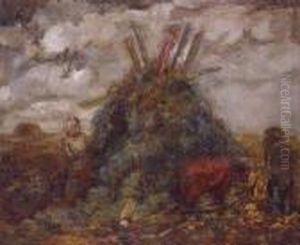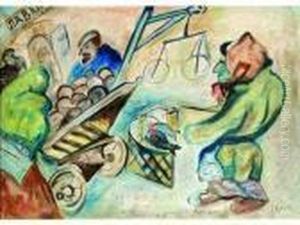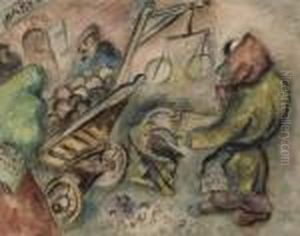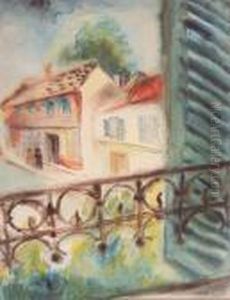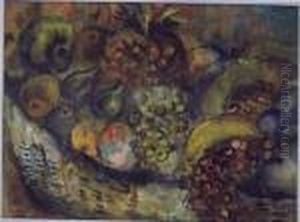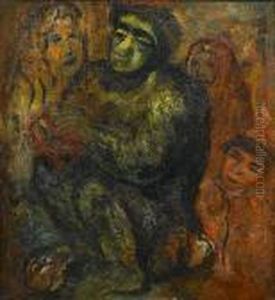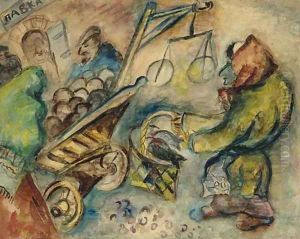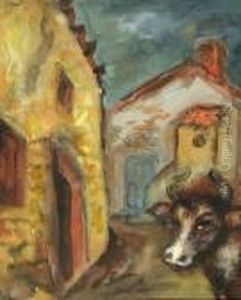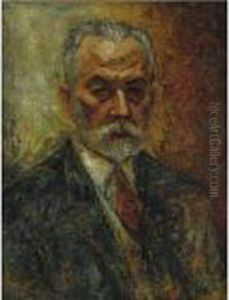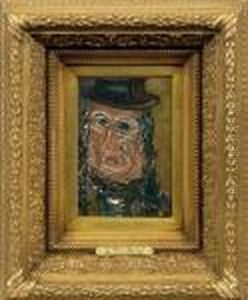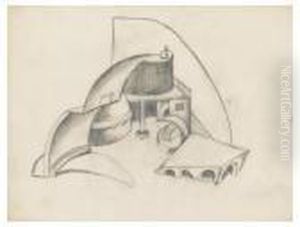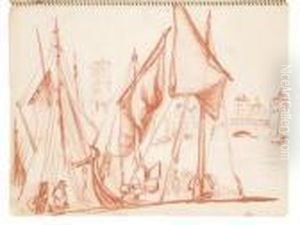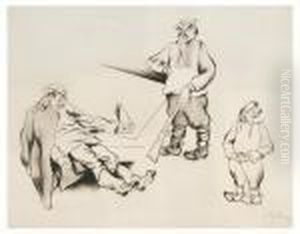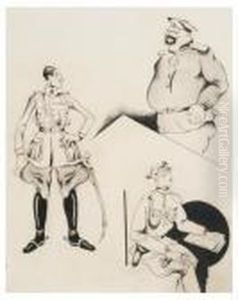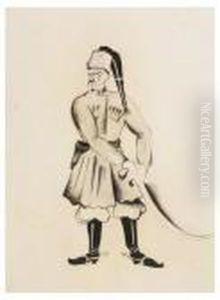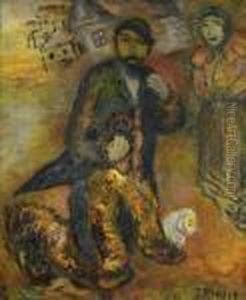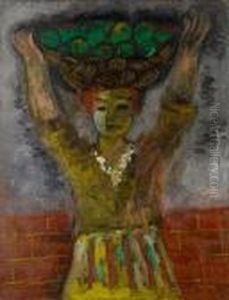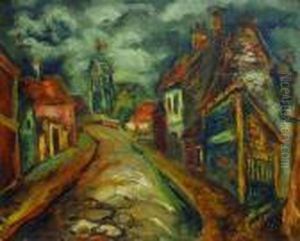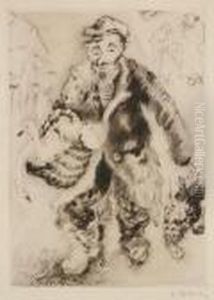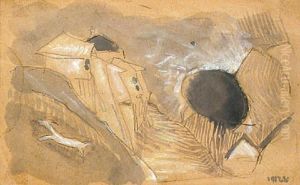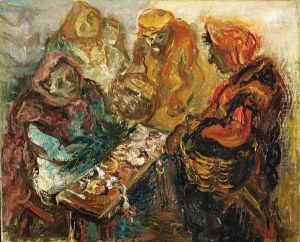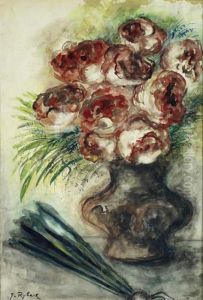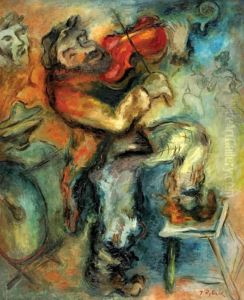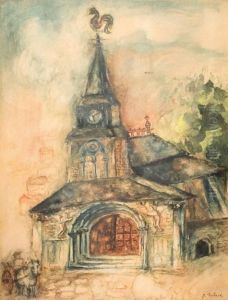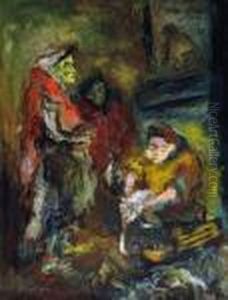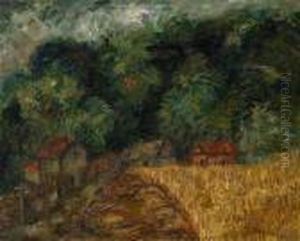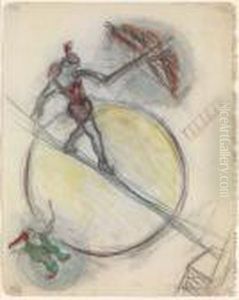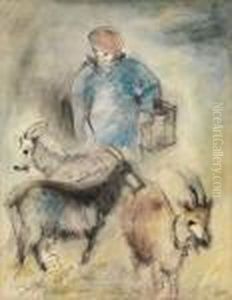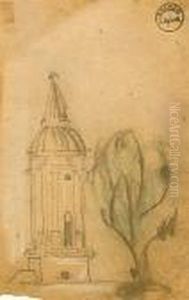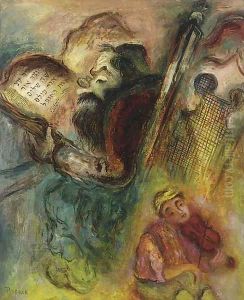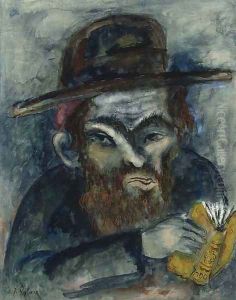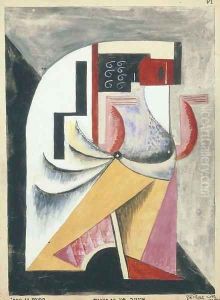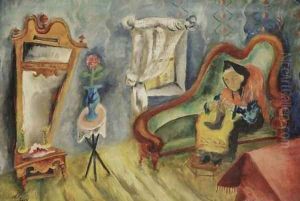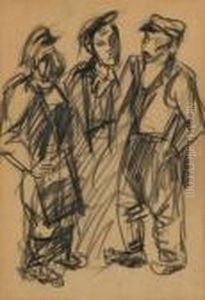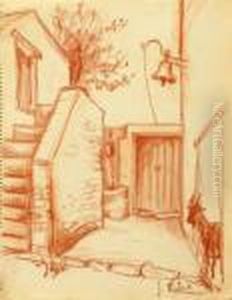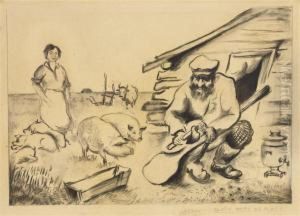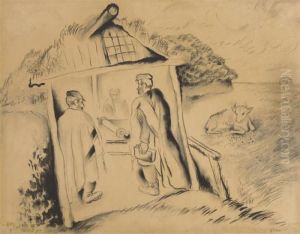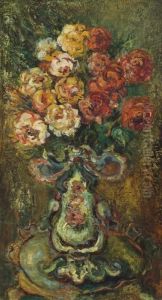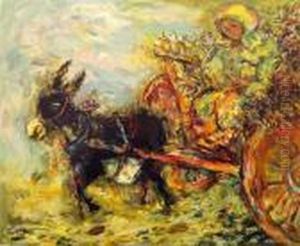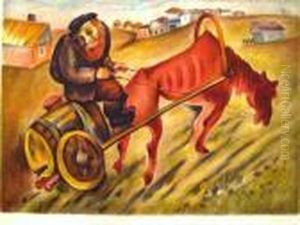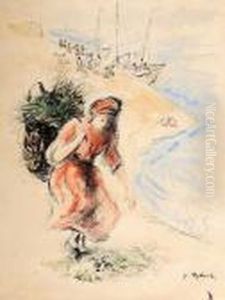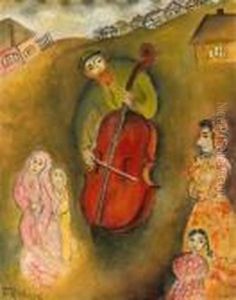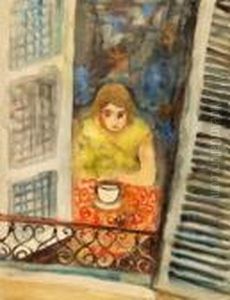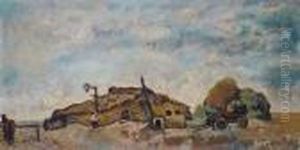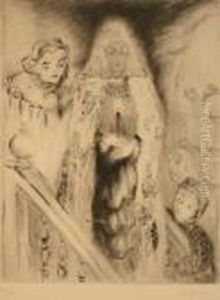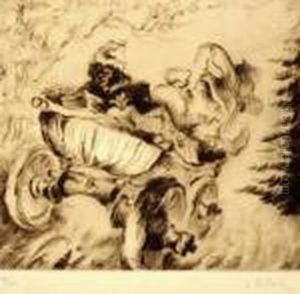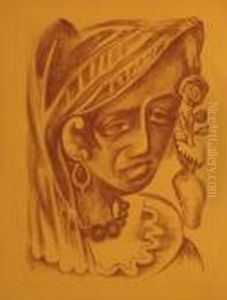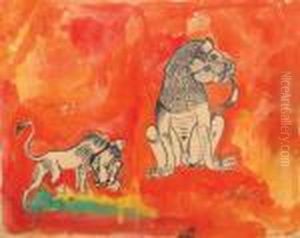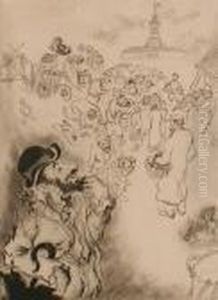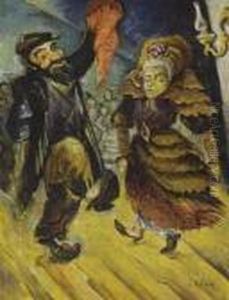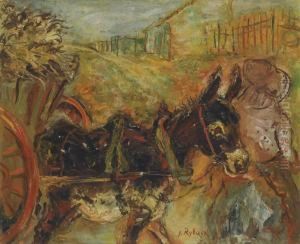Issachar ber Ryback Paintings
Issachar Ber Ryback, also known as Issachar Ryback or Yitzhak Rybak, was a notable Ukrainian-born Jewish artist whose works contributed significantly to Jewish art in the 20th century. Ryback was born on February 2, 1897, in Yelisavetgrad, Russian Empire (now Kropyvnytskyi, Ukraine). He grew up in a traditional Jewish family, and his early experiences in the shtetl (a small Jewish town or village in Eastern Europe) deeply influenced his artistic themes and subjects.
Ryback's artistic talents became evident at an early age. He studied at the Kiev Art School, where he was exposed to various art movements of the period. In 1916, he moved to Moscow and attended the Moscow School of Painting, Sculpture, and Architecture. It was here that Ryback became involved with the Jewish Renaissance in Russian art, a movement that sought to reinvigorate Jewish culture and identity through visual arts.
During the Russian Civil War, Ryback returned to his hometown, where he documented the pogroms and hardships experienced by the Jewish community. These experiences had a profound impact on his work, leading him to create a series of powerful and emotive paintings and drawings that depicted the struggles and resilience of Jewish people.
In 1921, Ryback moved to Berlin, where he became part of the flourishing community of Jewish artists and intellectuals. He was associated with the 'Kultur-Lige', an organization dedicated to Jewish culture and education, for which he illustrated books and designed stage sets. While in Berlin, Ryback's style evolved, showing influences from Cubism and Expressionism, yet he continued to draw on Jewish life and folklore for inspiration.
Ryback's reputation grew internationally, and his artwork was exhibited in various European cities. In 1926, he settled in Paris, which was then the center of the art world. Paris offered Ryback the opportunity to engage with a wider range of artistic influences and to exhibit his work alongside other prominent artists.
Tragically, Issachar Ber Ryback died at a young age on December 22, 1935, in Paris. Despite his brief career, Ryback left an enduring legacy. His works are characterized by a unique blend of avant-garde styles with traditional Jewish motifs, contributing a distinct voice to both Jewish and European modern art. His art continues to be celebrated and is held in numerous collections around the world, including museums dedicated to Jewish history and culture.
